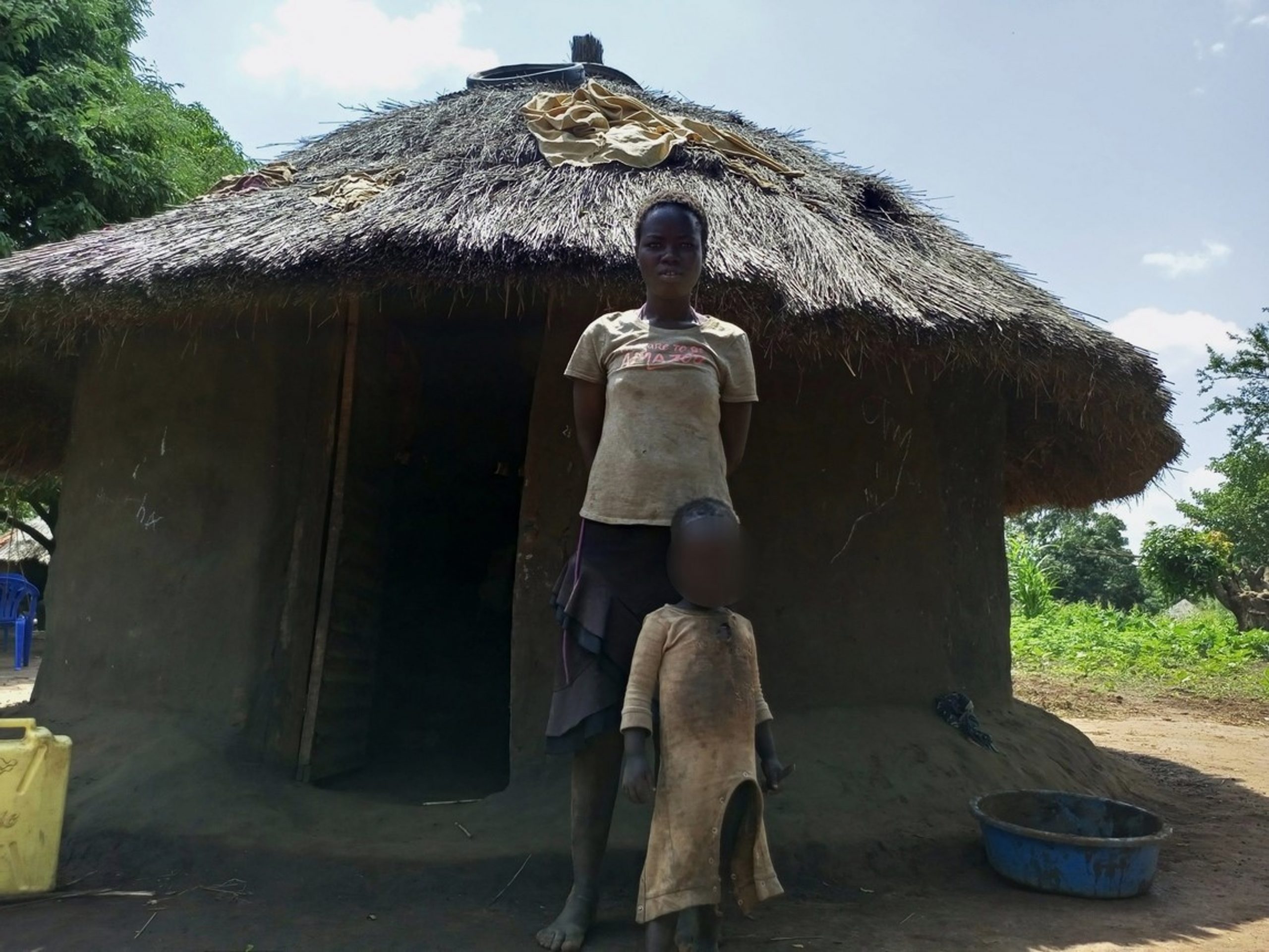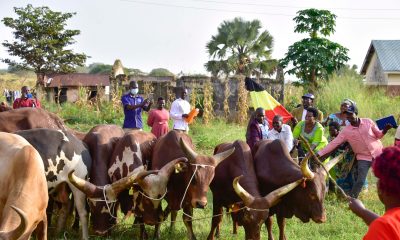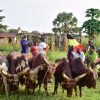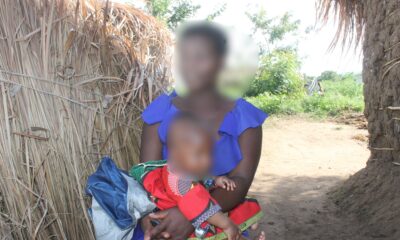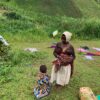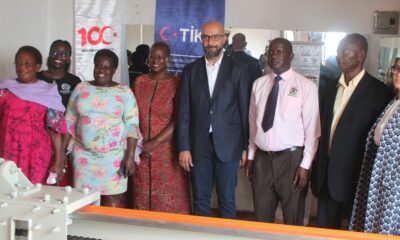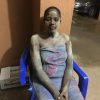Gender
Nodding syndrome victims raped, impregnated and infected with HIV
Ariemo Milly had beaten all odds and the future was looking brighter for her. Despite being a victim of nodding disease, she had managed to find a job and with that, she hoped to take care of her little sister who is severely affected by the syndrome.
However, in a tragic turn of fate, her hopes would soon come crashing down. Ariemo was only 19 when a man raped, impregnated and infected her with HIV.
It happened in broad daylight and somehow, nobody came to her help. At 17, she had secured a job at a restaurant in Kitgum town through a friend. She would wash utensils and deliver food to clients during lunchtime peak. She had learned over time to detect the tell-tale symptoms of an impending episode of the syndrome. This knowledge gave her the chance to engage in normal jobs like cooking, digging and doing the laundry, which most victims of nodding syndrome are unable to do.
We rode on a slippery and winding village track to reach Mr Ongom David’s home in Tedlagwe village, Lamit Parish, Labong Akwang sub-county in Kitgum district. Here, we found Ariemo Milly, now 21, and her sister Aber Jackline 20, both victims of the nodding syndrome. Her father takes care of four nodding syndrome victims including Ariemo, Aber and two of his late brother’s children.
Unlike Ariemo who welcomed us and dashed off into the neighbourhood to look for her father, Aber is unable to leave the house, because her condition is severe. During our visit, she was bedridden, banking on hope for a godsend to take her to the hospital.
The home is about 10kms from Tumangu Health Centre II where a lone medic dispenses drugs like Sodium Volproate, Cabamazepine and Folic Acid that help to reduce the frequency of nodding syndrome-related seizures. According to Banya Geoffrey the in charge at the health centre, they receive at least 20 victims of nodding syndrome every month. He attributes the low numbers to the long distance that patients have to walk in order to access the service.
Otto Joel, the first person to publicly speak out about nodding syndrome in 1998 has been a tireless advocate for the victims, who also lost one of his children to nodding syndrome.
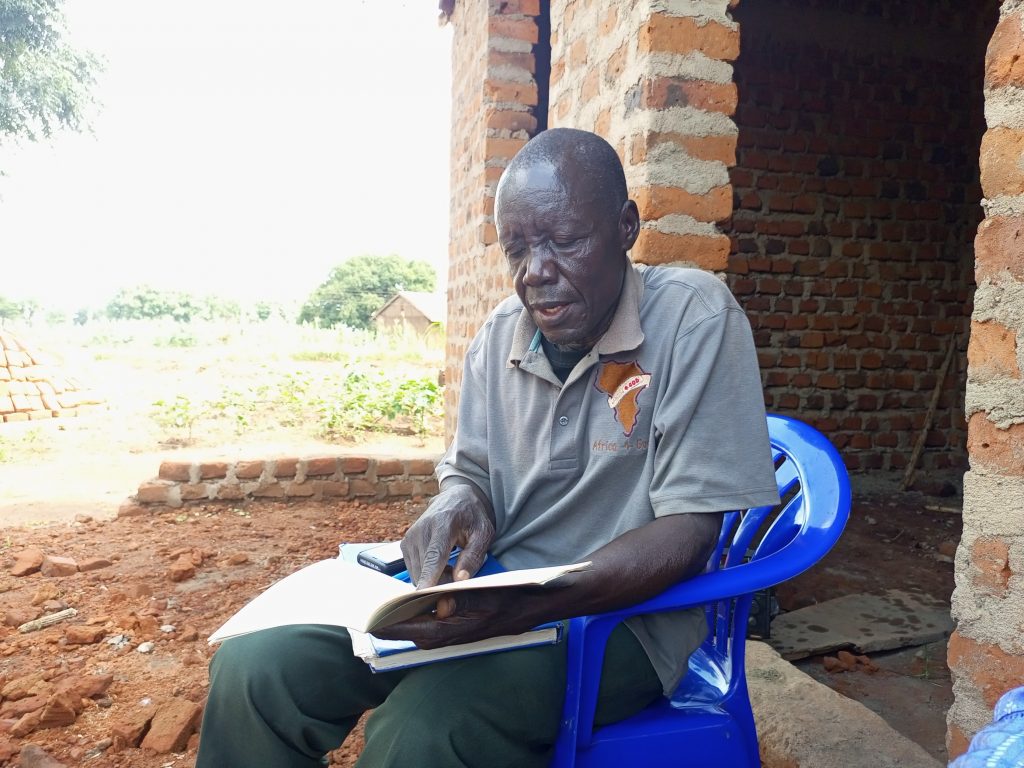
Mr Ongom’s daughters are some of the beneficiaries of the assistance Otto has mobilized over the years. Working with some NGOs and other stakeholders, he managed to secure ambulance services for the victims, who are too ill to reach the health centre or hospital on foot or bicycles.
Ariemo and her sister Aber first showed symptoms of the syndrome in 2004 when the family lived in a camp for people displaced by the LRA, in Labong Akwang. They received medication just like other victims, but nothing was working.
Fortunately for Ariemo, she learnt to proactively manage the convulsions whenever she suffered an episode, giving her a chance to perform duties that normal girls her age do. This is why she was able to get a job in Kitgum town. However, she is now part of the statistics of the 197 nodding syndrome victims around the district, who have been raped and impregnated over the years.
For her, the trauma went beyond rape and pregnancy because she was also infected with HIV/AIDS by her rapist. She recalls the events of the fateful day vividly. Just as on any other day, Ariemo was sent by her employer to deliver food to a customer.
“I had gone to deliver food when I met the monster. He dragged me in broad daylight as he tried to take me to his friend’s house which was nearby. I made an alarm, but people looked on as if I did not matter” narrates Ariemo.
“He then dragged me to his friend’s house and raped me while people outside did not care to help. I felt alone. It was awful” she adds.
After the incident, Ariemo went back to work and she did not tell anyone what had happened to her. “I felt like no one cared anyway. Sharing would not help,” says Ariemo. A few weeks later, she would discover that she was pregnant. It is at this point that she decided to go to Kitgum hospital for a checkup.
“I was not feeling well, so I went to the hospital for a checkup. Since I was a victim of nodding syndrome, I was required to come with a caretaker or a husband. When they realized I was alone, the hospital sent me home to bring a parent or an LC letter. I picked up the letter and headed back. After the tests, I was told that I was pregnant and had acquired HIV. I wanted to commit suicide there and then. I felt like my world had ended” a frustrated Ariemo says.
Her family was supportive when they learnt what had happened. The health workers also helped her all the way through the pregnancy to ensure that she had an HIV-free child.
Ariemo is ambivalent about her future. She says not even the child she had, means much. She is on ARV therapy and regularly receives the pills. She and her child now live at her father’s home and she swears never to go back to town in search of a job. Instead, she wants to join a vocational school and pick a skill like knitting that will help her raise earn an income to support her child through school.
The Acholi subregion is replete with stories like Ariemo’s. According to Dr John Paul Kiffasi, the executive director of the Irene Gleeson Foundation (IGF), so many female victims of nodding syndrome have been raped and impregnated. Unfortunately, few can tell who their attackers are and some like Ariemo are also infected with HIV, another burden they have to carry for the rest of their lives.
IGF carried out a walk in support of victims of nodding syndrome on July 23rd where they received contributions from members of the community both in cash and in kind.
The support collected by IGF will help families like that of 54-year-old Aber Grace, a resident of Tumango village, Lamit parish in Labongo Akwang. Aber is a widow and mother of 12 children. However, four of these are living with nodding syndrome with the first one having first shown signs in 2003.
Okot Patrick was only 8 years in 2003 when he got affected. His sister Amito Alice would later catch the same just after she turned 5 in 2005. Their other sister Labolo Siline followed suit at 10 years in 2007, while Akello Violet got affected at age 12 in 2010.
Aber lost her husband Obwona David in 2010, leaving her the burden of taking care of the four victims and their 8 siblings. With just her two hands, she has managed to work the land to put food on the table for the family all these years. However, two of her daughters who are affected by nodding syndrome were raped and are currently breastfeeding.
Alice was raped at age 17 by an unknown man. Her memory is so blurred that she cannot remember what happened or who could have carried out this heinous crime against her. Due to the severity of her condition, Alice is not allowed in the kitchen or anywhere around near fire after she fell into the fireplace and suffered extensive burns some years ago. She is unable to talk and express herself, which may have worked to the advantage of the rapist. Her mother believes the person that attacked her to be a neighbour who knew enough about her speech and cognitive impairment as well as the family’s routine to take advantage of their absence.
Violet on the other hand had a man she believed loved her. She was 17 years too when the 23-year-old man impregnated her. She is also lucky that her condition is not as severe as Alice’s and she can manage to do some house chores. That is why, when she became pregnant, the man offered to marry her and take her home.
However, the man’s father chased Alice away claiming he could not afford another burden of nodding syndrome in the family.
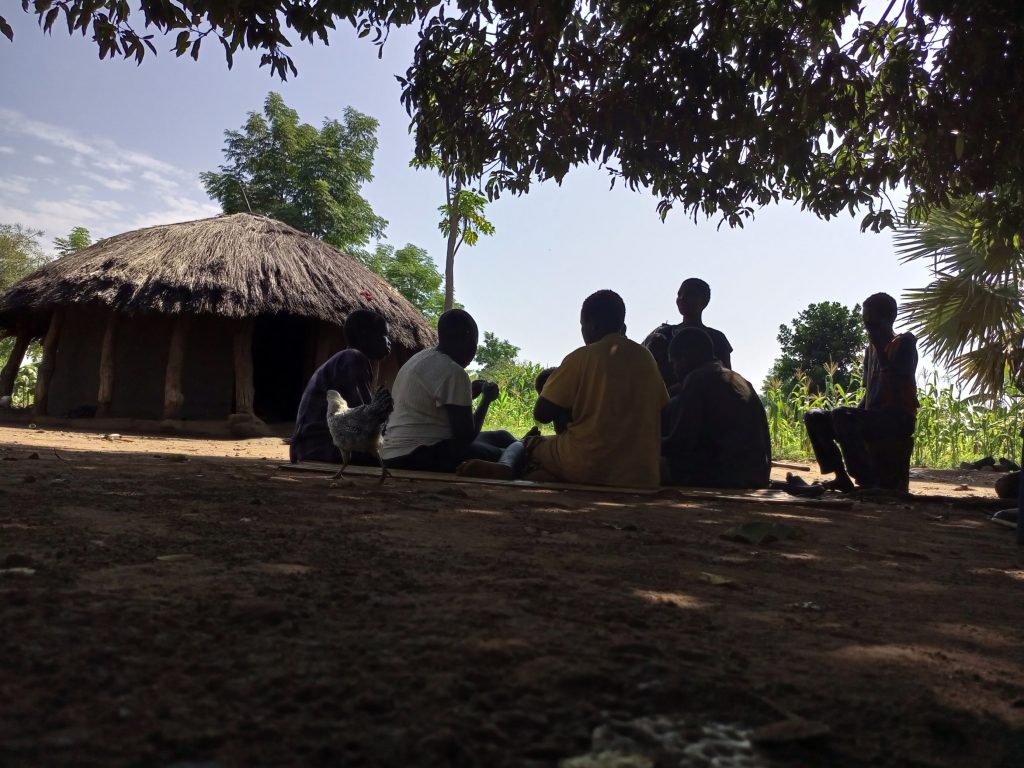
Aber says that in Luo culture when a woman becomes pregnant, she must go to live with her husband until she delivers. But Violet was chased away before she had the baby and went back to her mother’s hut where she would later have home delivery, giving birth to a bouncing baby boy.
“My son’s dad became hostile. He called me a curse and said I needed to leave and take back my disease to my village. After having the baby, he started claiming it wasn’t even his and that he had only accepted to marry me because the child was a boy,” says Violet.
Unfortunately, the family did not report the rape cases to the police because the station is very far away from the village. Aber also suspects some man in the village to be behind the heinous act against her daughter Alice. They are hoping that well-wishers show interest in the case and help them bring the suspects to book.
Aber’s household has a total of 12 that she takes care of single-handedly. The government gave her a donation of 15 iron sheets to build a bigger house and leave the small huts that house her family. Unfortunately, she has failed to complete the house due to financial constraints. With a vast piece of land and only less than five able-bodied family members to help her, Aber says she also needs intervention from the government especially the Ministry of Agriculture to provide Oxen and ploughs to help put the land to commercial use.
“The government gave me a donation of 15 iron sheets and I thought that if I finished the house, maybe my son Okot could sleep with us under the same roof. However, before I could even reach the roofing part I run out of money. Okot sleeps in the hut alone and I have to stay alert from my hut every night so that when he gets an attack, I run to help him. Whenever he gets an attack, he covers his whole body with blankets which can easily suffocate him,” Aber says.
She adds that “Siline has very bad attacks and sometimes it takes her a whole week to recover. Taking care of these four occupies all my time and it keeps me away from my gardens and this is where I need the most help. I have enough land but not enough manpower to till it. I would love for the government to help me with Ox ploughs or a tractor to do the tilling so I can plant enough crops for food at home and for sale.”
According to Aparo Beatrice the Woman councillor for Labongo Akwang and Labongo Layamo sub-counties, they have received several reports of girls who have been raped and impregnated, but each time the mothers report to police, the culprits are released on police bond, less than 24 hours after arrest.
This is the same case with Ariemo who reported the case to Kitgum police station. The suspect whom she identifies as Obuni Alex was expected to be arrested after she filed the case SDREF20/04/2019 Defilement. However, Ariemo’s family alleges that a police officer under CID Kitgum who was sent to arrest Obuni tipped him off instead, prompting the suspect to run into hiding.
Hon Aparo says that together, 84 girls in her area have been impregnated and had babies already.
She adds that as Labongo Akwang they have come up with a proposal to compel all men who are known to have impregnated the girls, to take care of them. She adds that the same issue has been reported to the State Minister for Northern Uganda Grace Kwiyucwiny and Prime Minister Robinah Nabanja to come up with a better solution.
Aparo is calling upon NGOs to come and help nodding syndrome victims, especially girls who have needs including sanitary pads. As a leader, she has tried to follow up on some of the cases too.
Minister Kwiyucwiny says she has received the reports and was in the same area recently. She noted that in Lamwo district, 77 girls have so far given birth. She however says that they were waiting for the final data from all districts affected by nodding syndrome.
The minister added that the men who have impregnated the girls are nowhere to be seen, leaving the burden to the girls and their families.
Minister Kwiyuchwiny says that while the government is planning to help, the priority is being given to the nodding victims themselves. The victims are categorized into three as she explains here.
Several homes lack basics like food, sanitation, and medical care among other essentials. According to Apiro, small help even in form of sanitary towels for the girls and food for their children would go a long way to help. With partners like the Irene Gleeson Foundation (IGF), the government and other wellwishers, she is optimistic that most of the challenges can be dealt with.
However, Aber wishes and hopes that someday, doctors who took samples of her children’s blood for testing shall return with conclusive results and tell them what is wrong and how it can be treated. The CDC describes nodding syndrome as an unexplained neurologic condition characterized by episodes of repetitive dropping forward of the head, often accompanied by other seizure-like activity, such as convulsions or staring spells. The condition predominantly affects children aged 5–15 years and has been reported in South Sudan from the states of Western and Central Equatoria and in Northern Uganda and southern Tanzania.
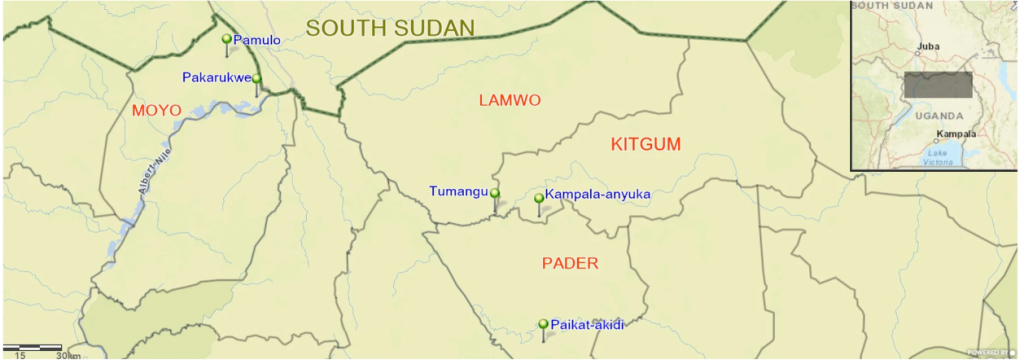
In Uganda, 28-year-old Monicah Abalo was the patient zero in 1998. She is mentally challenged and has been raped and impregnated twice. Abalo’s samples were collected on several occasions by different scientists but to date, her father Oyo Abdalah Bakit says they have never received any results. Their hope is that the scientists will come up with an explanation someday and bring her a cure. She was only 5 years when the episodes started. Due to the severity of her condition, her mental health has deteriorated and she is physically not well too. Her body is full of burns after falling into a fire during one of the episodes.
As Abalo awaits, the CDC says there is still, no underlying cause or cure that has been established. Through investigations, CDC scientists have tested for and ruled out dozens of potential causes, and these results have been provided to the Ministry of Health as soon as they have been available. CDC continues to analyze specimens and other information from affected children. Results from each new set of tests are provided to the Ministry of Health as soon as they are ready.
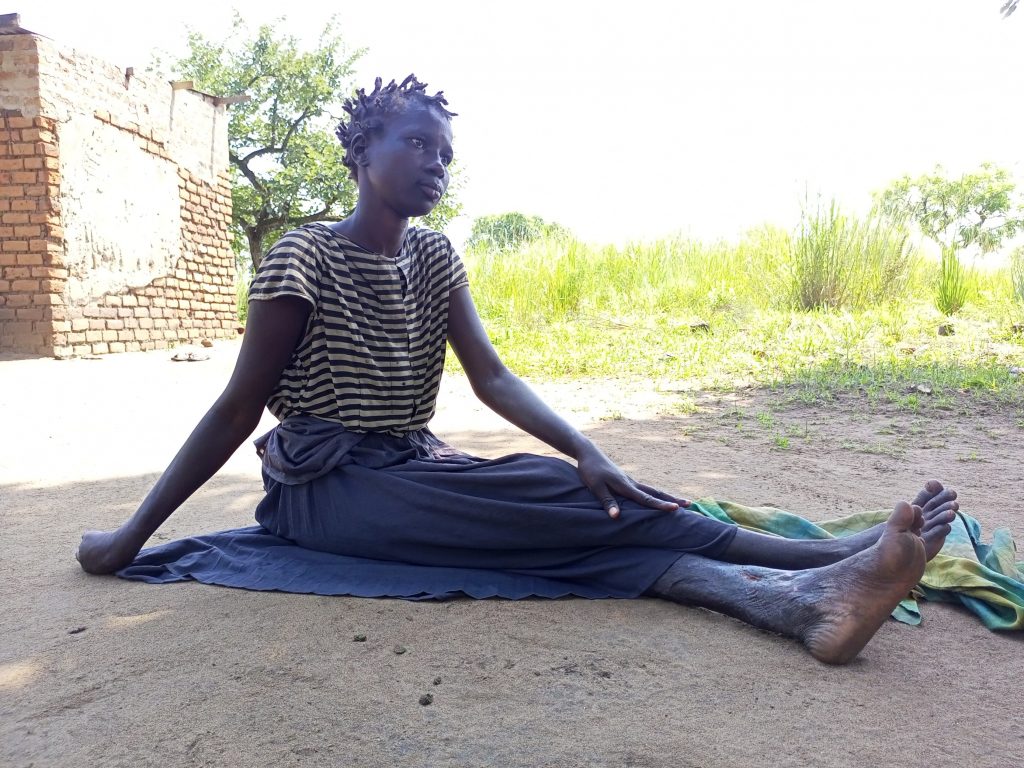
With all the bureaucratic inertia around, the victims can only live one day at a time as they hang on to hopes for a better future.
“These children have no dignity. They are tied to trees like animals and locked inside houses like they are incarcerated. A caretaker should be provided in areas with large numbers so that the parents too can about fending for their businesses. Care centres should be reopened where children can have breakfast, lunch and dinner and parents can be free to do business,” says Kiffasi.
On 26th May 2017, President Yoweri officially commissioned Tumangu Nodding Centre which was meant to house the victims of nodding syndrome as they were receiving treatment. Unfortunately, the centre has never been used and is unfit for its purpose. Residents have since taken out some of the iron sheets and left the whole centre dilapidated. It did not open for work even for a day.
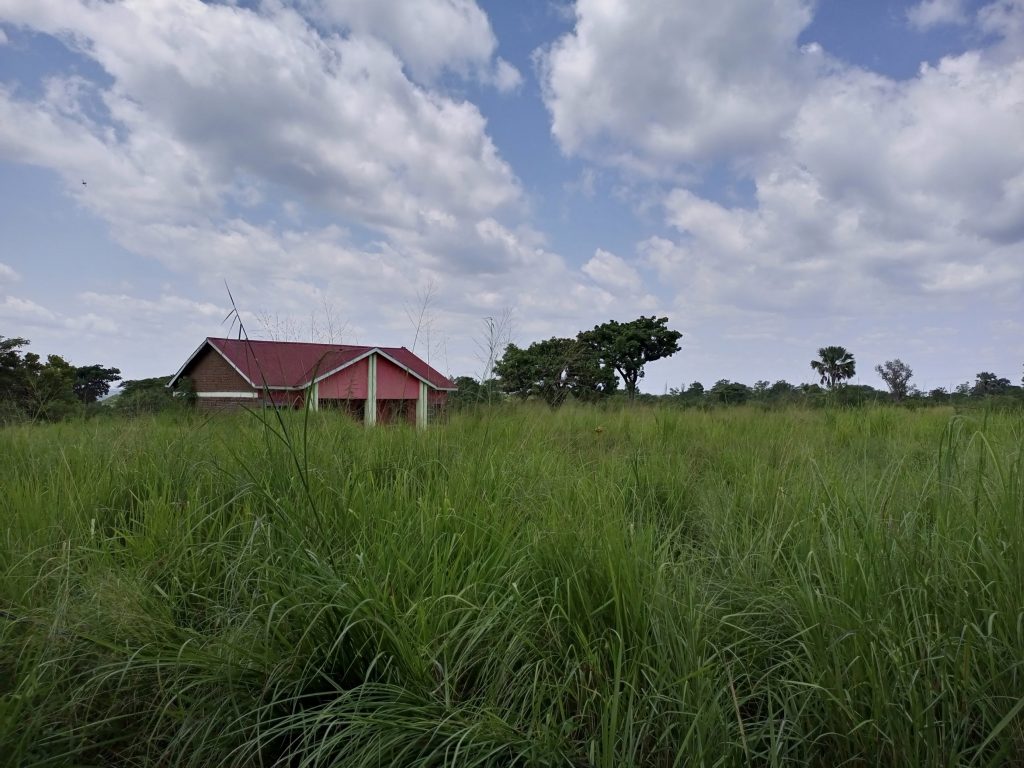
While the Ministry of health in a recent report said that there are no new cases of nodding syndrome, Mr Otto Joe who has been at the height of reporting cases since 1998 says three new cases were reported. Two cases are in Gogo and one in Labong, Labong Akwang Sub county. According to data obtained from the districts affected by nodding syndrome in Acholi region, the eight districts of Kitgum, Lamwo Gulu, Pader Omoro Amuru and Nwoya combined have registered 4,925 cases of nodding syndrome with 545 victims who have since died when the outbreak of the disease was reported in the early 2000s.
Our efforts to get a comment from the police about the rape cases yielded no fruits as the area DPC claimed to have no rights to speak to the media. Ariemo’s case is still pending under SD REF 20/04/2019. Her family alleges that Ogwang Robert the CID commander at Kitgum CPS at the time the case was reported tipped off the suspect Obuni Alex to run instead of arresting him.
When asked to verify the claims, Suwed Mansur the DPC Kitgum said, “I cannot comment on this. I am not allowed to speak to the media.”
This reporting was supported by the International Women’s Media Foundation’s Gender Justice Reporting Initiative.


